Recent Blog Posts
Choking Dangers for Nursing Home Residents
 For those who live in nursing homes and skilled nursing facilities, swallowing food is often difficult. There are many different conditions that could affect a person’s ability to swallow, including neurological disorders, cancer, and Alzheimer’s disease. Simply getting older can also wear down the muscles and nerves of the throat, making it hard for some elderly patients to swallow normally. Issues with swallowing dramatically increase the risk of choking, which means that nursing homes must take precautions to protect at-risk patients.
For those who live in nursing homes and skilled nursing facilities, swallowing food is often difficult. There are many different conditions that could affect a person’s ability to swallow, including neurological disorders, cancer, and Alzheimer’s disease. Simply getting older can also wear down the muscles and nerves of the throat, making it hard for some elderly patients to swallow normally. Issues with swallowing dramatically increase the risk of choking, which means that nursing homes must take precautions to protect at-risk patients.
Not Just an Accident
For a healthy person, an incident of choking is usually just an accident. A piece of food may “go down the wrong way” or a person might be talking or doing something else while eating, which could lead to choking. For a resident of a nursing home, it is possible for a choking event to occur as an accident, but many cases are caused by a lack of proper monitoring. In short, the facility staff should have taken steps to prevent the resident from choking but failed to do so.
Warning Signs of Possible Nursing Home Neglect, Part Two: The Patient
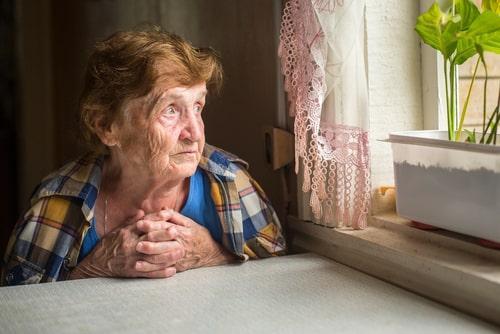 The Illinois State Police estimates that more 100,000 elderly individuals currently live in nursing homes and other long-term care facilities throughout the state. This figure is expected to increase in the years ahead as Americans are generally living longer than they did in previous generations. In fact, a recent study found more than half of American adults will stay in a nursing home at least once during their lives.
The Illinois State Police estimates that more 100,000 elderly individuals currently live in nursing homes and other long-term care facilities throughout the state. This figure is expected to increase in the years ahead as Americans are generally living longer than they did in previous generations. In fact, a recent study found more than half of American adults will stay in a nursing home at least once during their lives.
A person who requires the type of care that is offered by a nursing home or skilled nursing facility should be able to receive that care without having to fear that will be forgotten about or mistreated by the facility’s staff. Unfortunately, instances of neglect are far too common in nursing homes around the country, including in the greater the Chicago area.
Patients Often Show Signs of Neglect
A recent post discussed some of the things associated with a nursing facility that might raise concerns that neglect is occurring within its walls. Indicators of understaffing or a lack of motivation on the part of staff members should encourage you to check in with your loved one to ensure that he or she is receiving the proper care and attention.
Warning Signs of Possible Nursing Home Neglect, Part One: Red Flags in the Facility
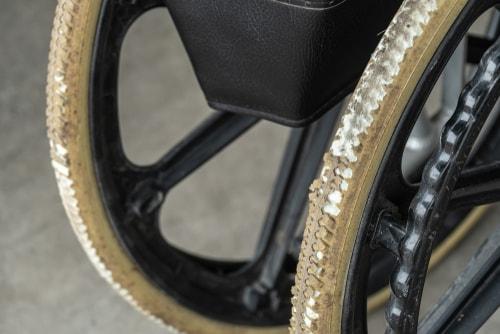 If you have a loved one in nursing home, deciding which facility to use was probably not an easy decision. While you might have struggled to find a place that was affordable that worked with your loved one’s insurance coverage, you were also likely concerned about the quality of the care offered by the home. After all, you have the right to expect that your loved one will receive proper care, as well to be treated with dignity and respect.
If you have a loved one in nursing home, deciding which facility to use was probably not an easy decision. While you might have struggled to find a place that was affordable that worked with your loved one’s insurance coverage, you were also likely concerned about the quality of the care offered by the home. After all, you have the right to expect that your loved one will receive proper care, as well to be treated with dignity and respect.
Sadly, such is not always the case for nursing home patients. On almost a weekly basis, it seems, there is another story making headlines about patients who were abused or mistreated by staff members or other patients. While nursing home abuse is certainly horrific, the issue of neglect in nursing homes is equally troubling and much more common. Abuse, in this context, refers to active mistreatment or intentional behaviors directed toward a patient, while neglect refers to patients not receiving proper care of attention.
Report: Antipsychotics Are Used Too Often in Nursing Homes
 Those who work in nursing homes and assisted living facilities are tasked with keeping residents safe and comfortable. When a family makes the difficult decision to place a loved one in such a facility, they do so under the assumption that the home’s staff will provide appropriate medical care while looking after their loved one’s needs. Unfortunately, this is not always the case.
Those who work in nursing homes and assisted living facilities are tasked with keeping residents safe and comfortable. When a family makes the difficult decision to place a loved one in such a facility, they do so under the assumption that the home’s staff will provide appropriate medical care while looking after their loved one’s needs. Unfortunately, this is not always the case.
In many nursing homes, staffing levels are alarmingly low, and training is often inadequate. These issues lead to serious problems, including the improper use of medication as chemical restraints.
A Scary Report
Last year, the watchdog group Human Rights Watch released a report that examined the prescribing of medications to nursing home residents. The report estimated that each week, approximately 179,000 residents of nursing homes are given antipsychotic medications despite not having conditions for which the drugs are approved. Antipsychotics, including olanzapine, aripiprazole, and quetiapine, are intended to manage psychosis in patients who suffer from hallucinations, delusions, paranoia, or severe disassociation from reality. In most cases, such patients have been diagnosed with conditions such as bipolar disorder and schizophrenia.
The Dangers of Malnutrition and Dehydration for Nursing Home Patients
 A person may come to reside in a nursing home, rehabilitation hospital, or assisted living facility for a wide variety of reasons. He or she might need care on a temporary basis while recovering from a serious injury, illness, or surgical procedure. Alternatively, the person might need to live in a nursing home for the rest of his or her life.
A person may come to reside in a nursing home, rehabilitation hospital, or assisted living facility for a wide variety of reasons. He or she might need care on a temporary basis while recovering from a serious injury, illness, or surgical procedure. Alternatively, the person might need to live in a nursing home for the rest of his or her life.
Many residents in nursing homes are afflicted with conditions that require care and supervision 24 hours a day. Unfortunately, patients suffering from cognitive deficiencies such as those caused by dementia and Alzheimer’s disease often struggle to remember to eat and drink on their own. Such residents can quickly become malnourished or dehydrated if the staff does not pay proper attention. If your loved one is currently living in a nursing home, it is important to look for signs that he or she is not getting appropriate food and water.
Nursing Home Staff Members Facing Charges for Allegedly Encouraging Dementia Patients to Fight
 If you have not seen the 1999 film Fight Club, you have probably at least heard about the rules of Fight Club. According to the movie, “The first rule of Fight Club is, ‘You do not talk about Fight Club.’ The second rule of Fight Club is, ‘YOU DO NOT TALK ABOUT FIGHT CLUB.’” In the film, the Fight Club in question was a brutal, underground association of men from all walks of life who voluntarily engaged in semi-organized physical fights with one another as a violent form of cathartic release.
If you have not seen the 1999 film Fight Club, you have probably at least heard about the rules of Fight Club. According to the movie, “The first rule of Fight Club is, ‘You do not talk about Fight Club.’ The second rule of Fight Club is, ‘YOU DO NOT TALK ABOUT FIGHT CLUB.’” In the film, the Fight Club in question was a brutal, underground association of men from all walks of life who voluntarily engaged in semi-organized physical fights with one another as a violent form of cathartic release.
Today, two decades later, people still reference the movie and the idea of a fight club, but it is rarely discussed as a real thing. For elderly residents of a North Carolina assisted-living facility, however, the idea of a type of fight club was all too real, according to horrifying reports. Three staff members are currently facing criminal charges for encouraging dementia patients at the home to fight one another and posting the videos of the fights on social media.
Should I Install a “Granny Cam” to Protect My Loved One in a Nursing Home?
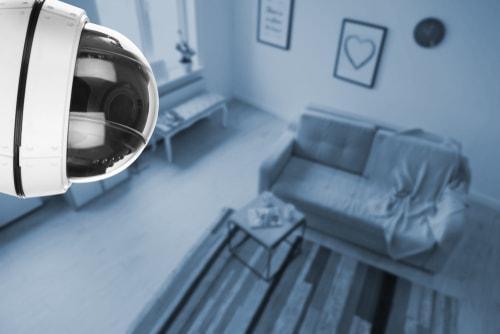 If you have a loved one who is living in a nursing home, you probably do not get to visit him or her as often as you would like. In your absence, of course, you have the right to expect the facility to provide quality care for your loved one and to treat him or her with dignity and respect. Unfortunately, nursing home residents do not always receive the care and ethical treatment that they deserve.
If you have a loved one who is living in a nursing home, you probably do not get to visit him or her as often as you would like. In your absence, of course, you have the right to expect the facility to provide quality care for your loved one and to treat him or her with dignity and respect. Unfortunately, nursing home residents do not always receive the care and ethical treatment that they deserve.
Horror stories from long-term care facilities across the country have left the family members of nursing home residents wondering what they can do to protect their loved ones. For some families in Illinois, the answer could be a monitoring device commonly referred to as a “granny cam.”
What Are Granny Cams?
In 2016, Illinois lawmakers passed a measure to explicitly permit nursing home residents or their family members to install surveillance devices, including audio and video recorders, in the residents’ rooms. Nursing homes are not obligated to provide the devices or any related services, such as wireless internet access, but facilities cannot prevent the installation or monitoring of such devices.
Nursing Home Fined After Residents Test Positive for Cocaine
 It is not uncommon for workers in certain professions, unfortunately, to develop drug habits. Those who work long hours under immense stress—such as line cooks and truck drivers—may turn to illicit substances such as amphetamines and cocaine to give them the “boost” they need. Sadly, workers in the field of health care are not immune to such issues. In fact, according to the Journal of Clinical Nursing, nearly one in five nurses struggle with an addiction to alcohol or drugs.
It is not uncommon for workers in certain professions, unfortunately, to develop drug habits. Those who work long hours under immense stress—such as line cooks and truck drivers—may turn to illicit substances such as amphetamines and cocaine to give them the “boost” they need. Sadly, workers in the field of health care are not immune to such issues. In fact, according to the Journal of Clinical Nursing, nearly one in five nurses struggle with an addiction to alcohol or drugs.
In any nursing home, therefore, there is likely to be at least one or two staff members who use or abuse illegal drugs. Unfortunately, however, illicit drug use is not always limited to staff members, and nursing home in Connecticut was recently fined after several residents were found to cocaine in their systems.
A Pattern of Problems
Earlier this week, news outlets reported that the Connecticut Department of Public Health had issued a fine to a skilled nursing facility in New Haven over several incidents between April 30 and May 18, 2018. According to the reports, at least four of the home’s residents tested positive for cocaine.
What Can I Do to Prevent My Loved One from Nursing Home Neglect or Abuse?
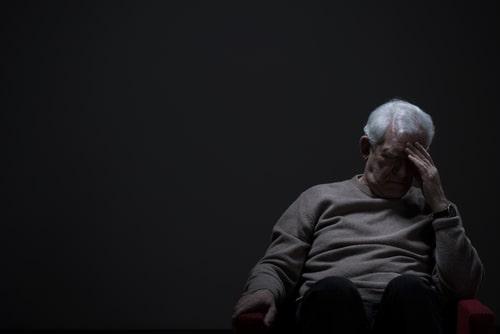 Every few weeks, there seems to be another sad story about an incident of abuse or neglect of a nursing home resident somewhere in the United States. All such stories are troubling, but some are downright terrifying, especially if you have a loved one living in a nursing home. Perhaps even more disturbing is the estimate that only about one in 14 cases of elder abuse—which includes nursing home neglect and abuse—are ever reported.
Every few weeks, there seems to be another sad story about an incident of abuse or neglect of a nursing home resident somewhere in the United States. All such stories are troubling, but some are downright terrifying, especially if you have a loved one living in a nursing home. Perhaps even more disturbing is the estimate that only about one in 14 cases of elder abuse—which includes nursing home neglect and abuse—are ever reported.
The good news is that it is possible to prevent your loved one from suffering the ill effects of abuse or neglect while living in a nursing home. Doing so will take some preparation, however, and careful attention to detail.
Be Educated
The most important thing you can do to protect your loved one from nursing home abuse or neglect is to do your homework on the facilities that you are considering for him or her. “Your homework” should be more than quick Google search or the cursory skimming of a brochure. Even relying on the familiar “star-rating” is not enough. In recent years, both Medicare and the Department of Veterans Affairs have had to restructure their star-based rating systems, which means that you might not be able to trust a “perfect” five-star score.
How to Recognize Possible Abuse in a Nursing Home
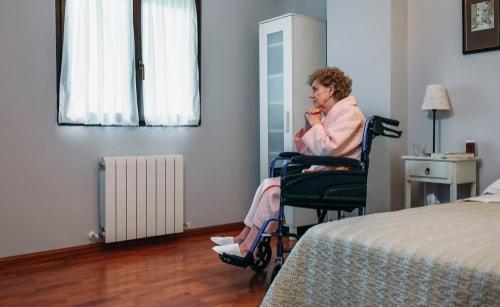 When a loved one requires the type of care that is only available in a nursing home or similar long-term care facilities, it is understandable for you to trust that he or she will be properly cared for. Nursing facilities, after all, employ trained medical professionals and other staff members whose primary responsibilities are to address the needs of the patients under their care. Sadly, many nursing home patients do not receive the care they need. Many others are subjected to treatment that might even qualify as neglect or abuse. If you have a loved one in a nursing home, there are some things you can look for that might be potential indicators of abuse or neglect.
When a loved one requires the type of care that is only available in a nursing home or similar long-term care facilities, it is understandable for you to trust that he or she will be properly cared for. Nursing facilities, after all, employ trained medical professionals and other staff members whose primary responsibilities are to address the needs of the patients under their care. Sadly, many nursing home patients do not receive the care they need. Many others are subjected to treatment that might even qualify as neglect or abuse. If you have a loved one in a nursing home, there are some things you can look for that might be potential indicators of abuse or neglect.
Many Residents, Many Concerns
There are more than 100,000 Illinois residents currently living in nursing homes and long-term care facilities in Illinois. The figure is expected to continue to grow, as recent estimates suggest that nearly half of Americans will require a nursing home stay at least once during their lives. Unfortunately, the high number of residents translates to a high number of patients who are likely to be abused or neglected, some of whom might suffer severe injuries or death as a result.

 312-535-4625
312-535-4625





